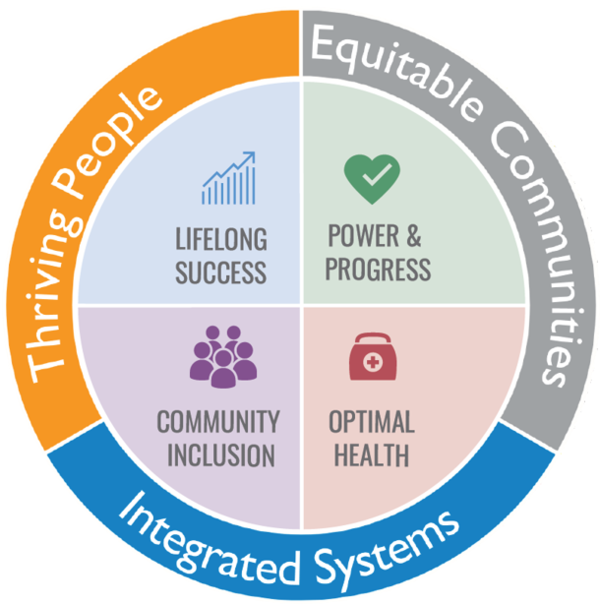By Stephanie Mercier, Director of Impact Investment, Corporation for Supportive Housing
For nearly 30 years the Corporation for Supportive Housing (CSH) has been focused on improving the life chances and well-being of people facing intersectional barriers related to extreme poverty, health disparity and disability, and racism and discrimination. As a national nonprofit and community development financial institution, we’ve collaborated with communities across the country to support the development of more than 300,000 units of supportive housing through training and technical assistance, lending, and policy advocacy. We cannot accomplish this work without aligned partnerships with organizations committed to creating positive change and a commitment to learning and scaling up proven solutions. That’s why we’re thrilled to partner with LEO.
CSH and the supportive housing field have learned—through dozens of studies—that supportive housing works: to end homelessness and promote housing stability, to reduce the unnecessary use of crisis systems of care, and to improve quality of life. But we also know that while having a home of one’s own and the support needed to sustain it is critical, that isn’t the end of the story. Instead, it’s a critical step that an individual or family takes on their journey toward truly thriving. The Covid-19 pandemic has made it clearer than ever that each person's ability to thrive is inextricably linked to the overall health of our communities. We have an opportunity now to truly create a society that ensures all people, especially those who have been marginalized or discriminated against, have a home in the community and the support they need to thrive.

As we focus on this vision, CSH has developed our Thrive Framework to guide our work. Although thriving looks different for each individual and family, the common thread is the extent to which it is fostered by the overall health of the surrounding community. Thriving communities are built by ensuring that everyone has the healthcare, food, economic opportunity, education, childcare, civic engagement, and outdoor space that we all need to be healthy and make meaningful progress in our lives. At the center of this is safe and affordable housing aligned with supports that help people connect to services in the community.
Thriving communities can unlock a broad range of positive impacts. CSH divides these impacts into four core areas that help to describe what thriving communities make possible for those who are part of them: lifelong success, power and progress, community inclusion, and optimal health. Defining the impact we hope to achieve is important, but we must also follow through by clearly defining our goals and evaluating our results. This includes the use of measures that help review progress on an ongoing basis, data to guide decision-making to advance equity, and partnerships to design and implement robust evaluation.
We see our Thrive Framework as a living document, and that is one of the many reasons we appreciate our partnership with LEO. LEO combines deep experience and expertise in conducting impact evaluations on anti-poverty programs with a practical understanding of what it looks like to implement programs on the ground. They’ve also been able to be flexible, learn with us as we develop our approach, and work with us to develop a shared vision that will advance our work.

We share LEO’s desire to identify innovative and scalable programs and to generate findings that can inform policy, practice, and funding decisions. We also know that organizations engaged in this work have much to learn from and teach each other. So we are partnering with LEO to launch a supportive housing cohort of organizations working together to design and launch impact evaluations focused on thriving with a core component of housing aligned with services.
The organizations in this cohort are:
Homeless Services Network of Central Florida, with a focus on supporting clients living in permanent supportive housing to move on to other affordable housing with less intensive supportive services.
Lutheran Social Services of Northern California, with a focus on supporting transition-age youth (18-24) through supportive housing and employment and education services.
Ohio Recovery Housing, with a focus on supporting people struggling with substance abuse with housing and other services to recover and become self-sufficient.
South Alamo Regional Alliance for the Homeless, with a focus on creating a new prioritization tool to help expedite placing clients—especially those most vulnerable and chronically homeless—in stable permanent supportive housing.
This cohort is a powerful jumpstart in our efforts to demonstrate how and to what extent programs or policies that align housing with services can support individuals, families, and communities in thriving. We can’t wait to see what we learn as we embark on this journey with LEO and these brave and innovative community partners.
